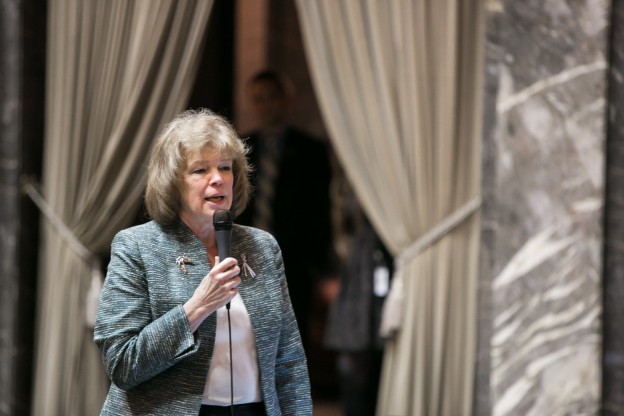Four Republican state senators from eastern Washington – 8th District Sen. Sharon Brown, 16th District Sen. Perry Dozier, 9th District Sen. Mark Schoesler and 13th District Sen. Judy Warnick – were among legislators who opposed three bills creating or raising taxes or fees that were passed during the Legislature’s final weekend of its scheduled regular session.
Brown, Dozier, Schoesler and Warnick voted against:
- Senate Bill 5126, which would impose a “carbon cap and tax” that would sharply raise gas and diesel prices. The Senate yesterday voted 27-22 to agree with House changes to the bill, sending it to Gov. Inslee, who requested the environmental legislation.
- House Bill 1277, which would create an additional $100 surcharge that must be collected by a county auditor for about 80 different recorded documents, with some exceptions. The Senate passed the bill 26-23 yesterday, and the House afterward voted 57-39 to approve the Senate’s amendments to it.
- House Bill 1477, which would impose a tax on radio access lines, voice-over Internet protocol service lines, and switched access lines to fund activities related to an enhanced crisis response. The “cell phone tax” in HB 1477 calls for a 24-cent tax per month per phone line through December 2022, and a 40-cent tax per line starting Jan. 1, 2023. After a House-Senate conference committee met to resolve differences between the two chambers, the Senate passed the compromise version of the bill 27-22, and the House followed with a 71-25 vote to approve the proposal.
Senate Bill 5126
Under this bill, starting in 2023, businesses producing more than 25,000 metric tons of carbon per year would be required to purchase “allowances” for emissions at auctions arranged by the Department of Ecology. End-user consumption would be included in emissions calculations, meaning refiners would be held responsible for tailpipe emissions. Money from these auctions would go to the state, and would be split between CO2 reduction programs and a transportation-related account called “Forward Flexible.” The price of allowances would grow over time until the state meets arbitrary emissions targets – 45 percent below 1990 levels by 2030 and “net zero” emissions by 2050. The program’s details would be handled by the Department of Ecology. The program is expected to raise about $500 million annually.
Republicans said SB 5126 could cause fuel prices to rise by as much as $2.41 a gallon, based on recent report.
“This is another bill that would punish people and companies by sharply raising gas and diesel prices, without a guarantee that our roads and highways will benefit, and no proof of even helping the climate,” said Schoesler, R-Ritzville. “The bill is called the Climate Commitment Act, but the only thing it will commit Washingtonians to is handing over more of their hard-earned money for an environmental plan that won’t work.”
Brown also took aim at the “Cap-and-Tax” bill, which she called extremely regressive and harmful to Washington families.
“There has been a lot of talk of equity from members of the majority this session, but they have not walked the walk,” said Brown, R-Kennewick, who serves as the Senate Republican Deputy Leader. “In my district, some of the best-paying, living-wage jobs for pipe-fitters, carpenters and other blue-collar workers are out in the furthest parts of the Hanford area. That’s an approximately 20-30-minute drive from many of our communities. The only options workers have to reach that area is to drive.
“Cap-and-Tax not only makes it harder for them to pay for gas to get to good-paying jobs, it also makes every item they need to provide for their families – from groceries to clothing – more expensive.
“If the majority really cared about equity and economic mobility, they would have never pushed this regressive tax that hurts the underprivileged and our working families the most.”
Dozier, a wheat farmer, said the “cap and tax” bill also would have a negative impact on Washington agriculture and would hurt the state’s economic competitiveness.
“This legislation all but ensures that family farms will no longer be able to operate in Washington state,” said Dozier, R-Waitsburg. “We’ll just see larger farms — not the little guy. Why would future generations want to be farmers? There are already so many barriers to farming that currently exist, this just continues to add unbearable costs that many won’t be able to afford.”
Warnick, who serves as the ranking member on the Senate’s agricultural committee, echoed Dozier’s sentiments.
“Ag producers have already had a target on them with all kinds of excessive regulations and fees. These kinds of proposals are just piling on,” said Warnick, R-Moses Lake. “Legislation that has passed to supposedly help the environment, won’t even come close to doing for our farmers what they are doing for us when it comes to being a good steward of our natural resources and the environment.”
House Bill 1277
The four eastern Washington legislators criticized the bill for creating an expensive fee just for recording a wide range of documents at a county auditor’s office.
“It’s stunning that the Democrats think it’s no big deal to increase a recording fee by $100. This is just another example of Democrats showing that they have no bounds when it comes to raising taxes and fees on hard-working people in our state,” said Schoesler.
House Bill 1477
In 2018, Congress passed the “National Suicide Hotline Improvement Act,” which required the FCC to study the feasibility of a three-digit code. In August 2019, the FCC recommended “988” as the code. And in July 2020, the FCC issued a rule to require all telecom providers to route “988” to the 10-digit lifeline by July 16, 2022. The result is the creation of a new three-digit line (988) that will route people to the current infrastructure (and phone number) of the National Suicide Prevention Hotline. Telecom companies are required to have the routing in place by July 2022. States can – but are not required to – levy fees on phone service. Fees raised must go to call centers answering 988 or other activities such as mobile crisis teams, crisis stabilization units, and follow up calls.
In addition to imposing a “cell phone tax,” HB 1477 would require the Department of Health and Health Care Authority to collaborate to establish state crisis call center hubs and an enhanced crisis response system to prepare for implementation of the 988 crisis hotline.
“Our state’s wireless consumers already pay 29 percent of their bills in government taxes and fees, the third highest government tax and fee burden in this country. This new ‘cell phone tax’ likely will make Washington’s wireless consumers pay the most in government taxes and fees,” said Schoesler.
The 105-day legislative session ended today.











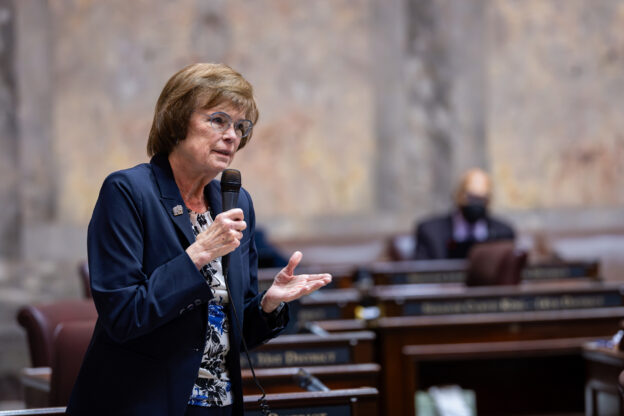
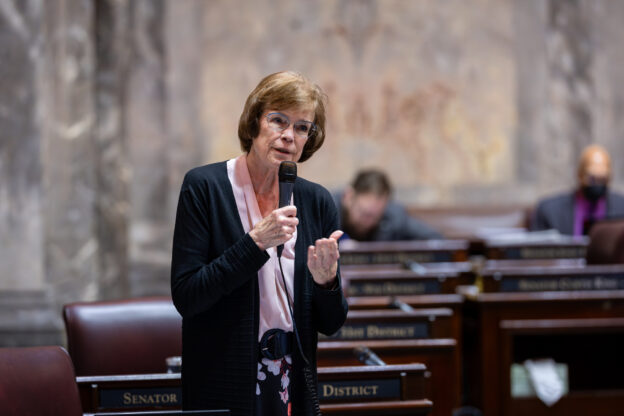
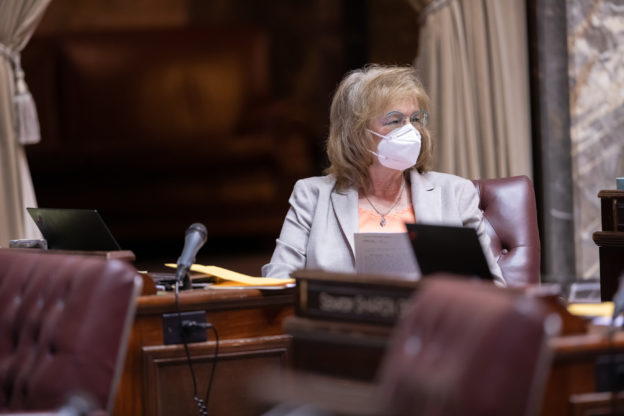

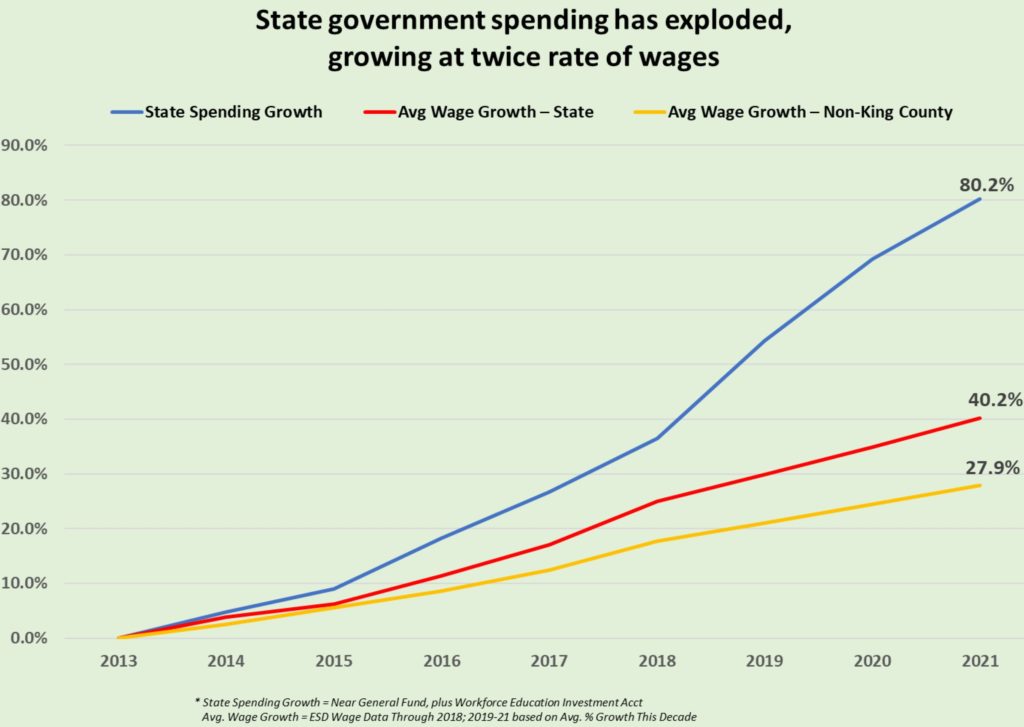
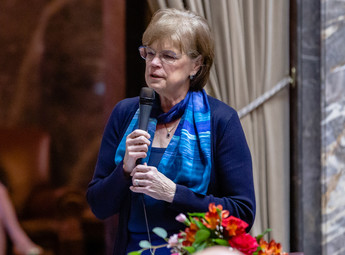

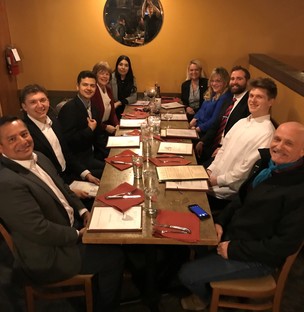
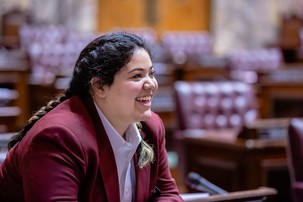







 14, 2019
14, 2019 Greetings from Olympia,
Greetings from Olympia,



 43
43 oring our Police
oring our Police
